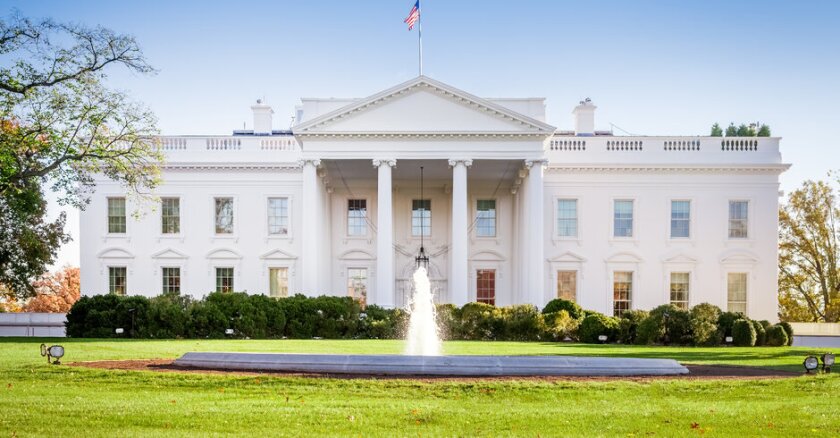Cutts elaborated on his decision — as well as his time with the USDS — in a subsequent Medium post, noting that the group started in 2014 with “a dozen or so technologists” and has now grown to be a team of 180, with more than 500 associated alumni. Cutts himself joined the group in late 2016, transitioning to government service after a long and prominent stint with Google, most famously heading the search engine’s webspam team that protects the quality of its results.
In his farewell post, Cutts cites a list of accomplishments during his time at USDS, specifically mentioning deploying tools to help veterans, digitizing the naturalization process, reimagining federal government hiring and supporting tech work at the state level.
At the end of April, I'm stepping down as Administrator of the U.S. Digital Service. It's such an incredible group of people, and I'm grateful for my time working alongside them. More info: https://t.co/xJ7VCfuxDW — Matt Cutts (@mattcutts) April 14, 2021
Cutts also noted that when he came to USDS, he expected that aforementioned tour of duty to last three to six months, and he is now writing this more than four years later.
While work at both the USDS and the federal tech consultancy 18F continued during the Trump presidency, many in the space say that having Biden in the White House is sparking a surge of interest from the tech community in working directly with and for the federal government. The Biden transition team, experts say, was unprecedented in the way it incorporated experienced technologists and data scientists into its work, going on to also entrench them within the new administration.
This heavy prioritization in public interest technology comes during a moment of great need as the nation continues to weather the COVID-19 pandemic. In short, there has never been a greater understanding of why the government must modernize and take its services online as private-sector talent shows an increased willingness to spend time doing public-sector work.
As such, Cutts ended his USDS goodbye post by imploring others to consider government tech work, writing, “As this new administration takes off, we need the help of even more folks who are passionate about how technology can make government more equitable and accessible. If you’re an engineer, designer, product manager, acquisition strategist or policy expert who cares about making government work better for real people, please consider applying to join us, or reach out.”
Maryland Lawmakers Establish Statewide Digital Equity Office
Lawmakers in Maryland have passed the Digital Connectivity Act of 2021, which calls in part for establishing the Office of Statewide Broadband.The office is aimed at not only supporting broadband within the state, but also at fostering digital inclusion and digital equity, with a stated goal of getting all residents of Maryland connected to high-speed Internet that they can afford by 2026. Now that it’s been approved, part of the office’s early work will be helping to distribute the $300 million from the American Rescue Plan that Maryland has tabbed for getting its residents connected.
The new office will be housed within the existing Maryland Department of Housing and Community Development, and with it, Maryland joins a number of other states dedicating full staff positions, agencies or other resources within the government to broadband and digital equity.
While this work has been sparse at the state level for some time, lessons learned during COVID-19 have created new societal awareness of its importance, paving the way for Maryland and other states — from Colorado to New Jersey — to direct new resources toward digital equity.
Colorado Smart Cities Alliance Launches Revive! Challenge for Pandemic Recovery
The Colorado Smart Cities Alliance (Alliance) announced the launch of the Revive! Challenge on April 9. The Revive! Challenge is a way for the Alliance to seek solutions to help communities recover from the impacts of the pandemic while furthering resiliency and equity.Solutions could address challenges related to active transportation, economic data, public spaces, the digital divide or housing stability. Solution providers can apply by May 5 to implement their solutions in Colorado communities.
The Revive! Challenge is focused on no- and low-cost solutions, as the Alliance acknowledges the fiscal limitations many governments are facing in the wake of the COVID-19 pandemic.
There will be two information sessions held April 16 and April 28 addressing benefits, timeline and evaluation. More details on the challenge can be found on the Alliance’s website.
UServeUtah Grants Target Community Engagement Initiatives
UServeUtah, the state’s central coordinating body for service and volunteerism, has recently opened the application process for Community Engagement Grant funding.The target of this grant, as described on UServeUtah’s website, is to increase Utah residents’ awareness and participation involving community and civic engagement initiatives.
The award amounts for organizations will be between $5,000 and $25,000. Available funding will play a factor in the amount awarded.
Assessment criteria includes measurable impact, need, feasibility and innovation. Eligible applicants include nonprofit organizations, higher education institutions, state agencies, government entities within the state, community- or faith-based organizations and partnerships with any of the aforementioned.
Applications for the grant are due on May 3.














